Hyundai i30 Wagon VS Hyundai i10 – Specs, Efficiency & Price Comparison
Which model is the better choice – the Hyundai i30 Wagon or the Hyundai i10? We compare performance (140 HP vs 90 HP), boot capacity (602 L vs 252 L), efficiency (5.70 L vs 4.90 L), and of course, the price (24800 £ vs 14600 £).
Find out now which car fits your needs better!
The Hyundai i30 Wagon (Estate) is powered by a Petrol or Petrol MHEV engine and comes with a Manuel or Automatic transmission. In comparison, the Hyundai i10 (Hatchback) features a Petrol engine and a Manuel or Automatic gearbox.
When it comes to boot capacity, the Hyundai i30 Wagon offers 602 L, while the Hyundai i10 provides 252 L – depending on what matters most to you. If you’re looking for more power, you’ll need to decide whether the 140 HP of the Hyundai i30 Wagon or the 90 HP of the Hyundai i10 suits your needs better.
There are also differences in efficiency: 5.70 L vs 4.90 L. In terms of price, the Hyundai i30 Wagon starts at 24800 £, while the Hyundai i10 is available from 14600 £.
Compare all the key specs now and find out which model fits your lifestyle best!
In the latest showdown between compact city agility and versatile family space, the Hyundai i10 and Hyundai i30 Kombi go head-to-head. The Hyundai i10 thrives in urban landscapes with its compact dimensions and nimble handling, making it a stellar choice for city dwellers. Meanwhile, the i30 Kombi impresses with its robust cargo capacity and refined driving dynamics, appealing to those who require both comfort and practicality for longer journeys.
Hyundai i30 Wagon
The Hyundai i30 Wagon offers a blend of practicality and style, making it a popular choice for families and those in need of extra space. Its sleek exterior and comfortable interior provide a pleasant driving experience, while advanced safety features ensure peace of mind on the road. The i30 Wagon stands out with its impressive fuel efficiency and reliability, catering to both urban and rural lifestyles.
details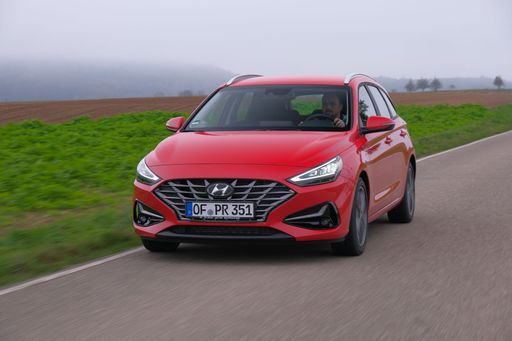 @ hyundai.news
@ hyundai.news
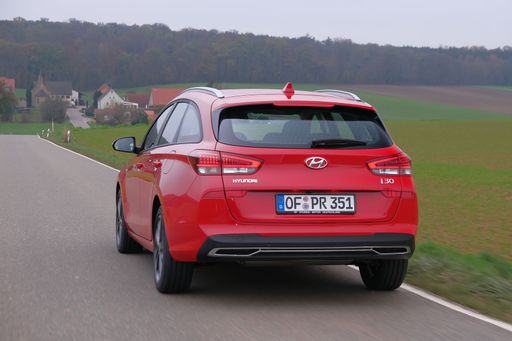 @ hyundai.news
@ hyundai.news
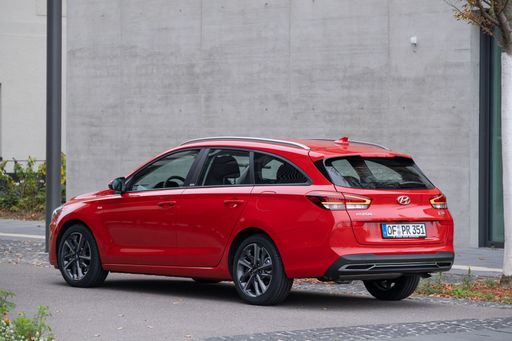 @ hyundai.news
@ hyundai.news
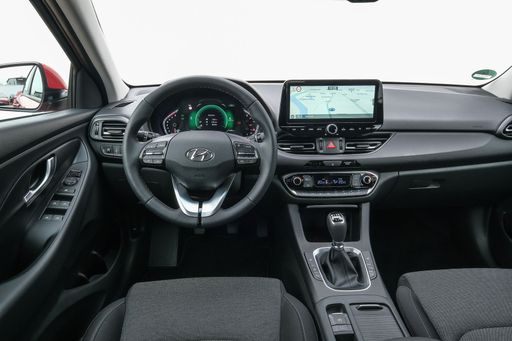 @ hyundai.news
@ hyundai.news
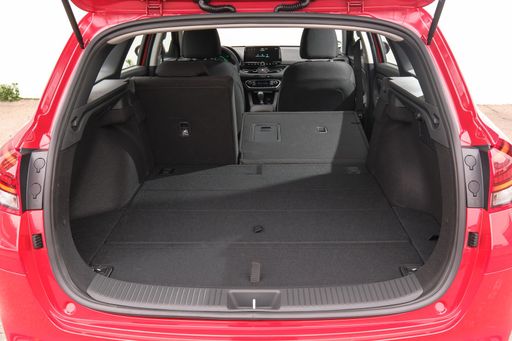 @ hyundai.news
@ hyundai.news
Hyundai i10
The Hyundai i10 impresses with its compact design, making it an ideal choice for navigating through busy urban environments. Its interior is surprisingly spacious, offering drivers and passengers comfort beyond what one might expect from a city car. The model combines efficiency and practicality, making it an attractive option for those seeking both economy and functionality in their daily commute.
details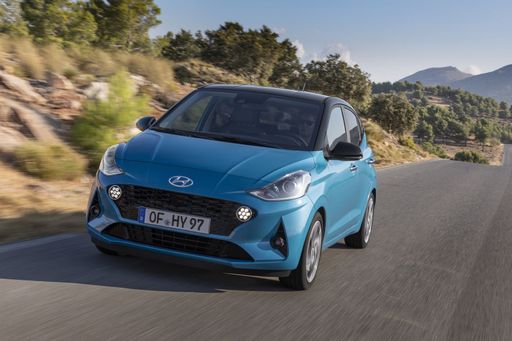 @ hyundai.news
@ hyundai.news
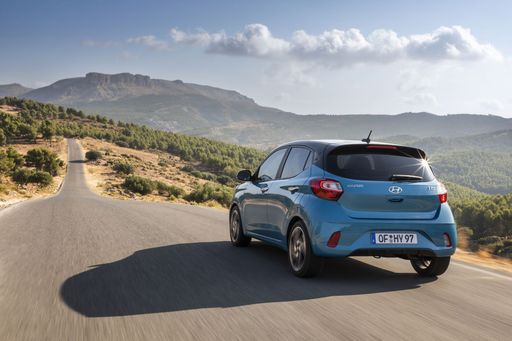 @ hyundai.news
@ hyundai.news
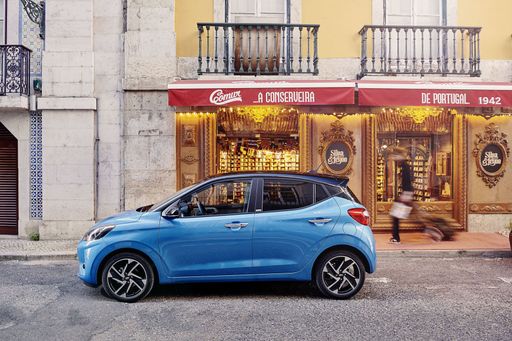 @ hyundai.news
@ hyundai.news
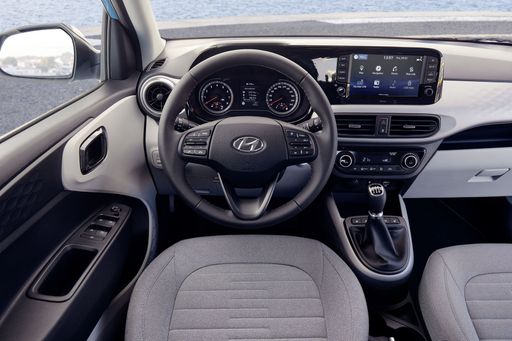 @ hyundai.news
@ hyundai.news
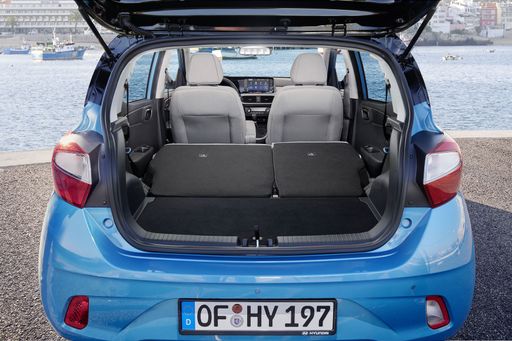 @ hyundai.news
@ hyundai.news
Compact Craftsmanship: Hyundai i10 vs. Hyundai i30 Kombi
In the realm of compact cars, Hyundai stands as a stalwart presence, offering the versatile i10 and the spacious i30 Kombi for the discerning driver. But how do these two siblings measure up against each other? Let's take a closer look at their technical specifications and innovations to see what each brings to the table.
A Tale of Two Bodies
The Hyundai i10, a compact hatchback, presents itself as a nimble city cruiser. It boasts a manageable length of around 3670 mm and a width of 1680 mm, making it perfect for urban maneuvering. On the other hand, the Hyundai i30 Kombi, with its elongated wagon body, measures a substantial 4585 mm in length and 1795 mm in width, offering ample space for families or those needing extra cargo capacity.
Engine Options and Performance
For the i10, Hyundai offers a choice of petrol engines, with power outputs ranging from 63 to 90 HP, and a torque spectrum from 93 to 172 Nm. Whether you choose the manual or automated transmission, expect an engaging drive, especially if you opt for the higher-powered 90 HP variant which accelerates from 0-100 km/h in a mere 11.4 seconds.
The i30 Kombi steps it up with more robust engine offerings, ranging from 100 to 140 HP. It also presents a mild hybrid option for eco-conscious drivers. With its torque figures reaching up to 253 Nm, the i30 Kombi can accelerate from 0-100 km/h in as little as 9.8 seconds, promising a more spirited driving experience.
Fuel Efficiency and Environmental Impact
For those prioritizing fuel economy, the i10 delivers impressive consumption figures, as low as 4.9 L/100km, thanks to its lightweight construction. Additionally, with CO2 emissions starting from 111 g/km, it stands as a more environmentally friendly choice.
Although slightly less frugal than its smaller counterpart, the i30 Kombi still offers respectable efficiency, with its petrol MHEV engine achieving 5.6 L/100km. With CO2 emissions at 126 g/km and above, it balances power with efficiency, an appealing factor for longer journeys and greater payloads.
Interior Space and Practicality
Despite its compact size, the i10 smartly utilizes its space to accommodate up to 5 passengers and a trunk capacity of 252 liters. It's an ideal option for city dwellers needing convenience and ease of parking without sacrificing passenger room.
The i30 Kombi naturally excels in cargo volume, with a generous trunk capacity of 602 liters, catering to those who require extra space for luggage or family gear. With a seating capacity of five, it combines functionality with comfort, making it an ideal family car.
Innovative Features
Both models feature front-wheel-drive systems, ensuring responsive handling and stability. While the i10 offers features suited for city driving, such as agile handling and efficient use of space, the i30 Kombi incorporates advancements like its dual-clutch automatic transmission, ensuring smooth and rapid gear shifts.
Conclusion: Choosing Your Ideal Hyundai
The choice between the Hyundai i10 and the i30 Kombi ultimately depends on your lifestyle and needs. For city dwellers and those desiring economy and maneuverability, the i10 is an excellent choice. Conversely, if you need extra space and more robust performance for family trips or longer commutes, the i30 Kombi is hard to beat. Regardless of your choice, Hyundai promises quality craftsmanship and reliable engineering in both these capable models.

|

|
|
|
|
Costs and Consumption |
|
|---|---|
|
Price
24800 - 30100 £
|
Price
14600 - 19000 £
|
|
Consumption L/100km
5.7 - 6 L
|
Consumption L/100km
4.9 - 5.5 L
|
|
Consumption kWh/100km
-
|
Consumption kWh/100km
-
|
|
Electric Range
-
|
Electric Range
-
|
|
Battery Capacity
-
|
Battery Capacity
-
|
|
co2
130 - 136 g/km
|
co2
110 - 124 g/km
|
|
Fuel tank capacity
50 L
|
Fuel tank capacity
36 L
|
Dimensions and Body |
|
|---|---|
|
Body Type
Estate
|
Body Type
Hatchback
|
|
Seats
5
|
Seats
4 - 5
|
|
Doors
5
|
Doors
5
|
|
Curb weight
1316 - 1461 kg
|
Curb weight
996 - 1099 kg
|
|
Trunk capacity
602 L
|
Trunk capacity
252 L
|
|
Length
4585 mm
|
Length
3670 - 3675 mm
|
|
Width
1795 mm
|
Width
1680 mm
|
|
Height
1475 mm
|
Height
1480 - 1483 mm
|
|
Payload
439 - 524 kg
|
Payload
344 - 423 kg
|
Engine and Performance |
|
|---|---|
|
Engine Type
Petrol, Petrol MHEV
|
Engine Type
Petrol
|
|
Transmission
Manuel, Automatic
|
Transmission
Manuel, Automatic
|
|
Transmission Detail
Schaltgetriebe, Automat. Schaltgetriebe (Doppelkupplung)
|
Transmission Detail
Schaltgetriebe, Automatisiertes Schaltgetriebe
|
|
Drive Type
Front-Wheel Drive
|
Drive Type
Front-Wheel Drive
|
|
Power HP
100 - 140 HP
|
Power HP
63 - 90 HP
|
|
Acceleration 0-100km/h
9.8 - 13.3 s
|
Acceleration 0-100km/h
11.4 - 18.4 s
|
|
Max Speed
178 - 197 km/h
|
Max Speed
143 - 175 km/h
|
|
Torque
172 - 253 Nm
|
Torque
93 - 172 Nm
|
|
Number of Cylinders
3 - 4
|
Number of Cylinders
3 - 4
|
|
Power kW
74 - 103 kW
|
Power kW
46 - 66 kW
|
|
Engine capacity
998 - 1482 cm3
|
Engine capacity
998 - 1197 cm3
|
General |
|
|---|---|
|
Model Year
2024
|
Model Year
2024
|
|
CO2 Efficiency Class
D, E
|
CO2 Efficiency Class
C, D
|
|
Brand
Hyundai
|
Brand
Hyundai
|
Hyundai i30 Wagon
Introducing the Hyundai i30 Wagon: A Perfect Blend of Performance and Practicality
The Hyundai i30 Kombi is a testament to the automaker's commitment to delivering high-quality vehicles that cater to a wide range of drivers. This versatile estate car combines sleek style, innovative technology, and efficient performance, making it an attractive option for those seeking a reliable family car or a spacious vehicle for everyday use.
Powerful Yet Efficient: Engine Options
The Hyundai i30 Wagon offers a selection of engine configurations, designed to balance power and efficiency seamlessly. You can choose from conventional petrol engines or the advanced 48V mild-hybrid technology for those looking to minimise their carbon footprint while enjoying an exhilarating drive.
The petrol engines provide a dynamic driving experience, while the mild-hybrid options incorporate a small electric motor to boost efficiency. Both engine types promise smooth, responsive performance, ensuring every drive is a pleasure.
Seamless Transmission Systems
With the i30 Wagon, Hyundai offers both manual and automatic transmission systems to cater to different driving preferences. The manual transmission provides direct control for enthusiasts who enjoy a more hands-on driving experience, while the automatic option is perfect for those prioritising convenience and comfort during their journeys.
Innovative Technology and Features
The interior of the Hyundai i30 Wagon is designed to offer maximum comfort and connectivity. Equipped with the latest infotainment system, drivers and passengers can enjoy access to a wide array of features, ensuring entertainment and connectivity on the go. The system is compatible with Apple CarPlay and Android Auto, providing seamless integration with your smartphone.
Safety technology is also at the forefront, with multiple driver-assistance features that enhance road safety, making the i30 Wagon a smart choice for families and safety-conscious drivers.
Spacious and Versatile Interior
Inside, the i30 Wagon boasts an impressive amount of space, with a boot capacity of 602 litres, easily accommodating the demands of a busy lifestyle. With comfortable seating for up to five passengers and flexible load space, it's perfect for long trips or daily commutes. Practicality is matched with attention to detail in design, making the interior both stylish and functional.
Pricing and Sustainability
The Hyundai i30 Wagon not only provides excellent value for money but also demonstrates a commitment to sustainability. With competitive pricing and efficient fuel consumption, it's an economical choice that doesn’t compromise on performance or quality. CO2 emissions are kept in check, making it an environmentally friendly option within this segment.
Conclusion: The Perfect Automotive Companion
The Hyundai i30 Wagon is an exceptional vehicle that strikes an ideal balance between innovation, style, and practicality. Whether you're navigating city streets or embarking on a countryside adventure, this car provides the reliability, comfort, and performance you require. It's more than just an estate car; it's your perfect automotive companion.
Hyundai i10
Introduction to the Hyundai i10
The Hyundai i10 has consistently proven to be a dependable and stylish companion for urban driving. Known for its compact design and efficiency, this hatchback offers a perfect blend of modern aesthetics and practicality, making it a popular choice for city dwellers and small families alike.
Performance and Efficiency
The Hyundai i10 is available with both manual and automatic transmissions, catering to various driving preferences. Engine power ranges from 63 to 90 PS, providing a versatile driving experience for both novice and seasoned drivers. The fuel consumption varies between an impressive 4.9 to 5.4 litres per 100 kilometres, fitting for those looking to minimise fuel costs while also reducing their carbon footprint.
Engine and Transmission
Equipped with a choice of 1.0-litre or 1.2-litre engines, the i10 offers up to 172 Nm of torque, ensuring lively performance. The models feature front-wheel-drive configurations, allowing for smooth handling and reliable road performance. The car excels in city driving but is equally capable on longer journeys.
Interior and Comfort
Despite its compact size, the Hyundai i10 does not compromise on interior space and comfort. It accommodates four to five occupants comfortably, offering sufficient legroom and headroom. Its flexible seating arrangement and a 252-litre boot make it ideal for both quick trips and weekend getaways.
Safety and Technology
Safety remains a priority with Hyundai, and the i10 is no exception. It comes equipped with multiple airbags, stability control, and advanced braking systems. Technology-wise, the i10 features a user-friendly infotainment system with smartphone connectivity, ensuring a pleasant and connected drive.
Design and Style
The Hyundai i10’s design is both modern and sleek, making it stand out in the compact hatchback segment. With a length ranging from 3670 to 3675 mm, a width of 1680 mm, and a height of 1480 to 1483 mm, the i10 strikes a perfect balance between style and functionality.
Affordable Pricing and Value
The i10 is available in several trims including the Select, N Line, and Prime, among others, with prices ranging from €16,990 to €22,190. Considering its features and low running costs — with monthly expenses estimated between €694 to €793 — the Hyundai i10 offers substantial value for those seeking an economical yet stylish hatchback.
Conclusion
The Hyundai i10 combines efficiency, modern design, and practicality in a compact package. Whether you are seeking a reliable city car or an economical daily driver, the Hyundai i10 is a strong contender worth considering in the compact car market of 2024.
The prices and data displayed are estimates based on German list prices and may vary by country. This information is not legally binding.
